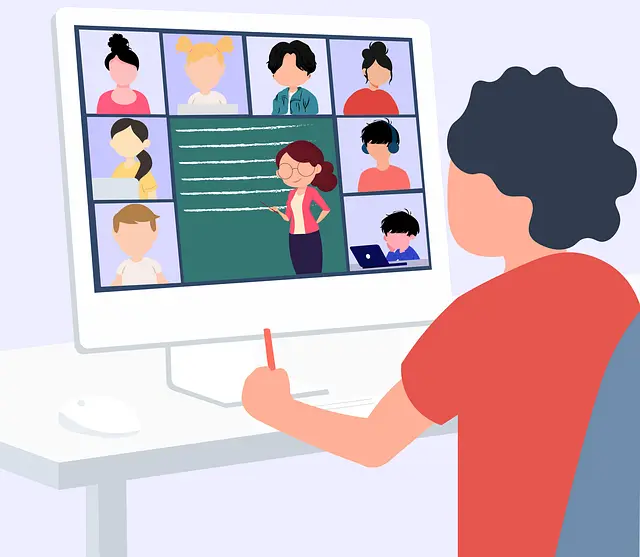
The Evolution of Online Education
From Correspondence Courses to Virtual Classrooms
The concept of distance education is not new. It dates back to the late 19th century when correspondence courses were offered via mail. However, the digital revolution of the late 20th and early 21st centuries has dramatically expanded the possibilities of remote learning. The internet has transformed the correspondence course model into a dynamic, interactive online learning environment. With the proliferation of high-speed internet and advancements in educational technology, online college degrees have become a viable and often preferable option for many students.
The Impact of COVID-19
The COVID-19 pandemic acted as a catalyst for the growth of online education. With traditional campuses closing their doors to prevent the spread of the virus, institutions were forced to transition to online platforms almost overnight. This sudden shift highlighted both the potential and the challenges of online learning. While some institutions struggled with the transition, others were able to leverage existing online infrastructures to continue providing quality education. The pandemic underscored the need for flexible, accessible educational models and has likely permanently changed the landscape of higher education.
Benefits of Online College Degrees
Flexibility and Convenience
One of the most significant advantages of online college degrees is the flexibility they offer. Students can access course materials and complete assignments at times that fit their schedules. This is particularly beneficial for working professionals, parents, and individuals with other commitments. The ability to learn at one's own pace and in one's own environment can lead to better retention and understanding of the material.
Access to a Wide Range of Programs
Online education breaks down geographical barriers, allowing students to enroll in programs offered by institutions around the world. This expanded access means students can choose from a wider variety of courses and degree programs that may not be available locally. Additionally, online programs often cater to a broad spectrum of disciplines, from traditional academic subjects to more specialized fields.
Cost-Effectiveness
Online college degrees can be more affordable than their on-campus counterparts. Students can save on costs associated with commuting, housing, and physical textbooks. Many online programs also offer lower tuition rates or financial aid options. Furthermore, the ability to continue working while studying means that students do not have to sacrifice their income to pursue higher education.
Challenges of Online College Degrees
Maintaining Student Engagement
One of the primary challenges of online education is keeping students engaged. Without the physical presence of a classroom and direct interaction with peers and instructors, some students may find it difficult to stay motivated. Educational institutions must employ innovative teaching methods and interactive technologies to foster a sense of community and keep students actively involved in their learning.
Ensuring Quality and Accreditation
The quality of online education can vary significantly between institutions. It is crucial for prospective students to research and choose programs that are accredited and have a proven track record of delivering high-quality education. Accreditation ensures that the program meets established standards and that the degree will be recognized by employers and other educational institutions.
Technical Issues and Accessibility
Technical difficulties can pose significant barriers to online learning. Reliable internet access and up-to-date technology are essential for participating in online courses. Additionally, students with disabilities may face challenges accessing course materials or participating in virtual classrooms. Educational institutions must prioritize accessibility and provide the necessary support to ensure all students can succeed.
The Future of Online College Degrees
Blended Learning Models
As the world emerges from the pandemic, many institutions are exploring blended learning models that combine online and in-person instruction. This hybrid approach can offer the best of both worlds: the flexibility of online learning and the engagement of face-to-face interactions. Blended learning can also provide a more personalized education experience, allowing students to tailor their learning to their individual needs and preferences.
Advancements in Educational Technology
Technological advancements will continue to shape the future of online education. Virtual reality (VR) and augmented reality (AR) are emerging as powerful tools for creating immersive learning experiences. Artificial intelligence (AI) can provide personalized learning pathways and real-time feedback to students. As these technologies evolve, they will enhance the interactivity and effectiveness of online education.
Global Collaboration and Exchange
Online education has the potential to foster greater global collaboration and cultural exchange. Students from different countries and backgrounds can come together in virtual classrooms, enriching the learning experience with diverse perspectives. This global interaction prepares students for a more interconnected world and promotes cross-cultural understanding and cooperation.
Conclusion
The rise of online college degrees marks a significant shift in the landscape of higher education. While challenges remain, the benefits of flexibility, accessibility, and cost-effectiveness make online education an attractive option for many students. As educational institutions continue to innovate and adapt, the future of online education looks promising. By embracing new technologies and teaching methods, online college degrees can provide high-quality, inclusive education to students around the world, shaping the future of learning for generations to come.
